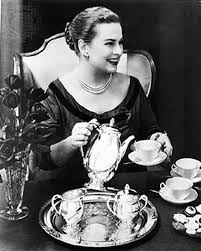At a time when globalization is exposing the weaknesses of many countries in competing with each other, especially in the Human Resource pillar, founder of Cool Corporation Joe Issa is supporting the use of standardized tests in etiquette to determine the suitability of prospective employees of Jamaica corporations, and to also prepare them to add value to their organizations.

“We are now living in a world without borders where competition is fierce, and making a good impression to those with whom you are planning to can make the difference between getting that big export contract or not.
“So it is critical for frontline employees to know the cultures of the countries with which their companies are trading, and being able to take advantage of opportunities to add value to their products,” said Issa.
For it was history-making former chairman and CEO of General Electric Jack Welch who once said, “Globalization has changed us into a company that searches the world, not just to sell or to the source, but to find intellectual capital – the world’s best talents and greatest ideas.”
Citing already-available books on the subject of etiquette, including standardized courses, Issa says “we do not have to invent the wheel as there are templates available; all we need to do is to pick those of the countries with which we are trading and to prepare employees to seize opportunities to improve the business in a number of ways.”
According to Wikipedia, some experts in etiquette teamed up with an international business group in 2011, to form a non-profit organization “to help HR departments of multinationals in measuring the etiquette skills of prospective new employees during the recruitment process by standardizing image and etiquette examination, similar to what ISO does for industrial process measurements.”
From the 16th century to today, many books have been written on etiquette including: Baldassare Castiglione’s “The Book of the Courtier” – a courtesy book, dealing with questions of etiquette and morality; Erasmus of Rotterdam’s book on “Good Manners for Boys” in 1530; and Emily Post’s 1922 work on “trivialities” of desirable everyday conduct, but also provided descriptions of appropriate conduct for key life events such as baptisms, weddings and funerals, said Wikipedia.
Later, Post is said to have set up an institution which continues “to provide updated advice on how to negotiate modern day society with good manners and decorum.” Her most recent edition is said to have provided advice on such topics as when it is acceptable to ‘unfriend’ someone on Facebook and who is entitled to which armrest when flying.

These etiquette books, as well as those by Amy Vanderbilt, Hartley, Judith Martin, and Sandi Toksvig outline, suggested behaviours for a range of social interactions. However, they are all said to have noted that “to be a well-mannered person one must not merely read their books but be able to employ good manners fluidly in any situation that may arise.”